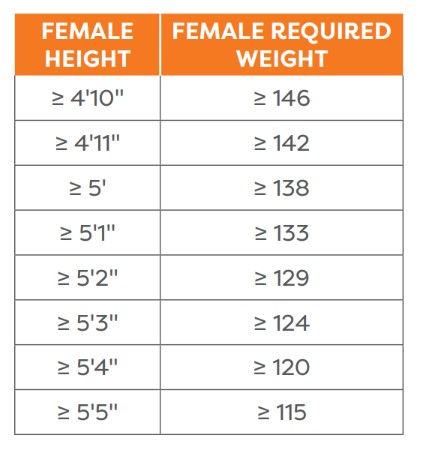Basic Eligibility Requirements for Blood Donation
You may be wondering if you can donate blood. Donating blood is safe and easy to do, but there are a few basic requirements to donate blood. If you're in good health and meet the general eligibility blood donation requirements, then you are likely able to give blood.
Blood donors are needed every day to save lives. Recent changes by the FDA to eligibility guidance, including the Individual Donor Assessment and European travel, may mean those once deferred can give. Please review the additional eligibility information below if you have questions about health conditions, HIV risk, medications, travel and more. If you don’t meet the blood donation requirements today or receive a deferral, we encourage you to come back and try again. You will likely be eligible to donate blood in the future.
Transform the lives of patients in need by donating blood today.
Ready to Donate?
Basic Requirements & Recommendations
![]()
Must be at least 16 years old*
![]()
Weigh at least 110 pounds*
![]()
Be in good general health
![]()
Bring your ID
![]()
Eat within 2 hours ahead of your donation
![]()
Drink plenty of non-alcoholic liquids
![]()
Wait eight weeks between whole blood donations
*Donors aged 16-22 have additional requirements. Please see Basic Eligibility below for more information.
Why are there requirements to donate blood? Eligibility requirements are important to help ensure the safety of both the blood donor and blood recipient. The Food and Drug Administration (FDA) has established blood donation requirements to keep the blood supply safe from bloodborne diseases and also keep patients safe from anything in a donor’s blood (such as a medication) that could harm them. These blood donation requirements also protect donors by making sure they are physically able to safely donate.
Basic Eligibility
Basic eligibility requirements for blood donation
- Must be at least 16 years old. If 16-years-old, a signed parent/guardian consent form is required each time you donate.
- 17-year-old donors do not need parental or guardian consent unless they live in these states (or their school requires it): Arizona, Colorado, Idaho, Montana, Utah, Washington or Wyoming.
- Weigh at least 110 pounds.
- Special height and weight requirements for donors 16 to 22 years of age and females ≥ 65 years old:
- Male donors: Must be at least 5'0" tall and weigh at least 110 pounds.
- Female donors: Refer to the chart below for eligibility. ≥ (greater than or equal to).
- Females ≥ 65 years old: If you are a new donor OR have not donated in the past 2 years, please see the minimum weight required by your height below.

- Be in good general health.
- For your safety and to support a positive donation experience, make sure you eat within two hours ahead of your donation. Drink plenty of water that day and 24 to 48 hours beforehand.
- Bring your ID—something with your name and one of the following: date of birth, donor ID number or your photo.
- You must wait eight weeks between whole blood donations. To learn more about specific intervals and donation types visit Types of Blood Donation.
- You should not be under the influence of alcohol or recreational drugs at the time of donation.
Additional requirements for platelet and Power Red donation
Platelet donors should avoid aspirin and/or aspirin-containing products 48 hours prior to donation and other anti-platelet medications.
Power Red donors must meet certain height and weight requirements.
Additional Eligibility Requirements
If you've recently gotten a tattoo, traveled abroad or take medications, chances are you can still donate blood, but please review how these might impact your eligibility.
